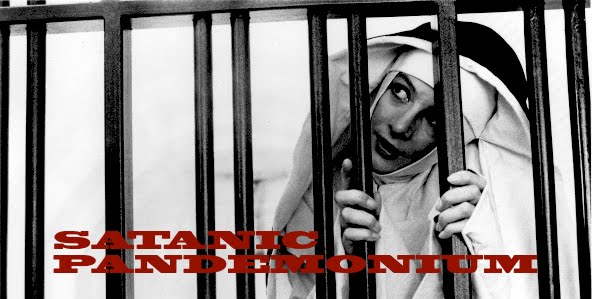Robert
Siodmak, 1950
Starring:
Barbara Stanwyck, Wendell Corey, Paul Kelly
Assistant
district attorney Cleve Marshall refuses to go home one night, because he’s tired
of putting up with his controlling father-in-law, and stays at the office to
get drunk. It’s there that he encounters Thelma Jordan, a woman trying to
report a potential robbery of her wealthy aunt’s jewelry. She and Cleve soon
begin an affair, though he realizes that her past is far murkier than it seems.
One night she calls him in a panic – her aunt has been shot to death – and he
comes to help her remove any evidence that may accidentally incriminate her.
Cleve also winds up prosecuting in court, where he can further protect her, but
he soon realizes that Thelma is not as innocent as she claims to be…
This
final film noir from director Robert Siodmak is definitely underrated and
shines mostly because of a stellar performance from Barbara Stanwyck – though let’s
face it; she’s excellent in everything. There’s also a well-crafted script that
builds slowly but steadily and makes up for a series of melodramatic moments by
focusing on the moral gray areas in Cleve and Thelma, and their obvious
attraction to one another. Unlike many other noir efforts, their attraction
grows into love, not betrayal, which is The
File on Thelma Jordan’s true source of anxiety and tension. In some ways,
this is a quieter, less stylish, and more mature take on Double Indemnity. Similar themes are played out – a woman and a man
decide to participate in murder for financial gain – but the elements are mixed
around. While Double Indemnity is
certainly the superior film, in many ways Cleve and Thelma are more complex,
developed characters than the fatally sexy Phyllis Dietrichson and the
good-hearted dupe, Walter Neff.
The
underused Wendell Corey (Rear Window,
Sorry, Wrong Number) is more aged and serious than Walter Neff. He’s not
the typical noir protagonist – a cynical loner who drifts through life with no real
attachments – he’s on the rise politically, thanks to his career as assistant
district attorney, and has a complicated home life. He loves his wife, who
clearly still desires him sexually, but strains under the yoke of her
oppressive and controlling father. His affair with Thelma is intentional on her
part – she does actually plan to commit a crime with her boyfriend – but their
relationship blossoms into real love, which the film takes time to develop,
making the events that follow far more believable. Thelma’s divided nature is
expressed by Stanwyck, but is also underlined by Tony (Richard Rober), a hunky,
good-for-nothing gambler who has an obvious (sexual) influence on Thelma and
likely plans to double cross her when she has outlived her usefulness to him.
Their
relationship is also flavored by a sense of the crushing weight of adult responsibility.
Both Thelma and Cleve are stifled by their life choices. Cleve acts like he’s
having a midlife crisis – he stays out late and gets drunk to avoid his wife
and her father – and he treats his wife as an authority figure that he must
rebel against. Any of his successes are soured by his father-in-law’s
involvement or influence. Thelma is similarly controlled by Tony and the
demands of her aunt. She rebels by sneaking out at night to meet Cleve and
struggles to develop her own identity, which rests somewhere between Tony and
her troubled past, the confining and mannerly lifestyle of her aunt, and the
somewhat healthier, but doomed love she has with Cleve.
The File on Thelma
Jordan
isn’t a perfect film. There’s a slow first act that is dialogue heavy and
overly sentimental, but if you can stick with it, it pays off. There are some
memorable supporting performances from Stanley Ridges (To Be or Not to Be) as the defense attorney and Gertrude Hoffman (Caged) as Thelma’s demanding aunt. There’s
also some lovely cinematography from George Barnes, though nothing is
particularly above or beyond as film noir goes. The File on Thelma Jordan is enjoyable not because it hits the
standard noir beats, but because it uses these in the background and crafts a
well-written, well-acted story about complicated adult love birthed in the wake
of desperation and crime.
Available
on Blu-ray in an average, skimpy release from Olive Films, The File of Thelma Jordan is also
available on Archive.org.
I would recommend the latter, unless you are a rabid Stanwyck fan. I complain a
lot about wishing more obscure horror and noir would be released on Blu-ray,
but a barebones disc is not quite what I was referring to. They could have at
least included a trailer and one or two special features about Siodmak or
Stanwyck. Despite the shoddy release situation, it’s worth watching thanks to a
marvelous performance from Stanwyck, who proves that she’s still got it
relatively late in her career.


No comments:
Post a Comment